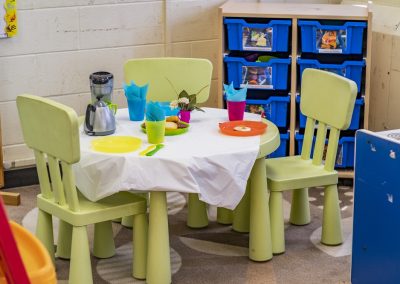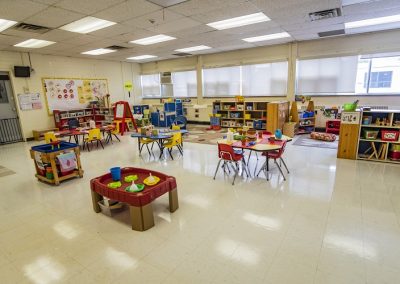PROGRAMS
Petit Pearson offers a variety of programs for various ages from toddlers to school age children. Our staff create program plans that are based on the interests and needs of the children.
Toddlers
Toddlers learn best in the context of relationships within small groups. In toddler classrooms, our small groups allow very young children to make connections, relationships, and learn to understand other children.
Areas of Development
As toddlers strive for independence, our educators create a program that supports each child’s individuality. The important learning outcomes in our toddler program are language development, socialization, self-help skills, and the development of fine motor and eye/hand coordination.
Language development is promoted throughout the daily conversation with educators, using labels or through repetition of their emerging vocabulary. This all contributes to toddlers becoming confident learners.
Music and Movement
We have a physical education and movement program for children six and under. This program provides a fun, safe and non-competitive environment to develop physical skills while nurturing a life-long love for active play. It includes multiple gross motor movements, balance and more.
Healthy & Nutrition Food
The program provides a healthy meal where the children are given adequate time to enjoy their lunch and snacks, which promotes social interactions and self-help skills. Children sit in small groups during meal and snack times. Children self-serve all food and assist with meal and snack routines. Our food is catered daily by Food for Tots.
- The morning snack program is between 8:00 a.m. to 8:45 a.m.
- The lunch program is between 11:00 a.m. to 12:30 p.m.
- The afternoon snack program is between 3:45 p.m. to 5:00 p.m.
NAP TIME:
The educators take reasonable steps to ensure that the children’s need for sleep and rest are met regarding their age and developmental stages.
The following are some of the guidelines for providing sleep and rest times at the Centre:
- Educators will ensure that the children’s cots and sheets are clean and in good condition.
- Each child sleeps in his or her own labeled cot.
- Sleeping children will be supervised by the educator at all times.
- Educators will sit near the resting child and support he/she by encouraging them to relax.
- Educators will encourage the child to rest his/her body at least for 20 minutes. If the child is awake, the child will be provided with quiet learning experiences for the duration of rest time.
- Educators will be sensitive to each child’s needs so that sleep and rest times are a positive experience.
- Sleeping child will be visually checked daily, every 15 minutes, by an assigned educator.






